|
Toh Zhee Qi is currently in her final year at the Faculty of Law, Universiti Malaya ('UM'). Before emerging as the social butterfly she is today, Zhee Qi was a timid young girl confined within the comfort of her chrysalis. Now, her voice precedes her as one of the Faculty's most prominent youth environmental advocates. Her journey took flight when she co-founded the Faculty's first environmental law organisation, Ecolawgy. Flying even higher, she branched out to various initiatives that revolve around climate change advocacy. Her efforts include working with United Nations Children's Fund ('UNICEF'), speaking at the British Council's A.R.C. Challenge Malaysia Forum, Youth Climate Change and Cultural Rights, and recently appearing as a guest speaker for BFM radio's podcast, entitled 'The Climate Crisis is a Child Rights Crisis'. Besides being an ardent supporter of green change, Zhee Qi is also well-known for her fervent poetry writing under the pseudonym Treepokok. Mainly published on her social media platforms, her poems have sculpted her ability to express her emotions about love, current issues, and even roti canai. Throughout this interview, we watched Zhee Qi's discovery of her footing as an excellent student, speaker, poet and above all, a human being. How did you find your way to the Faculty of Law, Universiti Malaya? 'Life works in the most interesting ways. I never thought of reading law. It was a bit later when I realised that having a law degree would allow me to venture into a variety of career options.' After establishing a scientific background during high school, Zhee Qi was set on continuing such a path — even going as far as to tell her friends that she would never step foot into legal academia. Yet, her affinity for the art of literature, sparked during her college days, redirected her trajectory into pursuing a law degree. She believed that apart from its versatility as the key to various career opportunities, it would also allow her room to keep her passions alive. One thing led to another, and she soon found herself as one of the fresh faces of the Faculty. Despite the unexpected turn of fate, she clarified that UM was always a place that she looked forward to calling home. It ultimately occurred to her that she was on the right path when she joined a mooting competition during her first year. In preparing for the Novice Arbitration Mooting Competition 2019 ('NAMCO'), Zhee Qi found satisfaction in the rigour of researching and problem-solving. Albeit standing as a freshman unfamiliar with the relevant areas of law, her charisma and confidence caught the attention of the arbitrators. Throughout the journey, she reminisces the opportunity to simplify legal jargon the most. Taking her involvement in the Malaysian Youth Delegation ('MYD') as an example, Zhee Qi was one of the few members with a legal background. This gave her an upper hand in understanding the law before attempting to convey it to her peers, particularly during the drafting of the MYD Constitution. Zhee Qi together with her teammates during the NAMCO 2019 — Ms Jacqueline Hannah, Ms Jowena John, Mr Fabian Meringgai, and Ms Clara Jane — trained by their exceptional coaches, Mr Raphael Kok and Mr Iqbal Harith Liang How did you unearth your passion for environmental activism, and how can others do the same? 'Begin by participating and getting to know the spectrum of environmental activism. This can help you find the path that would suit you the most.' One of her first involvements in the cause was when she joined a club called 'Eco Rangers' back in secondary school. However, this did not resonate much with her, as she merely joined for the thrill of it with her friends. She eventually unearthed a more vital vein of advocacy during the 2017 'No Straw' campaign. Zhee Qi amusingly expressed the irony that her passion stemmed from a tactic launched by big corporations to shift the burden of carbon emissions to regular consumers. Regardless, it dawned on her that the lack of strategic planning and uncontrolled human activities have devastating effects on marine life. From Zhee Qi's candid sharing, it is clear that inspiration can be derived from multiple sources — even from red herrings and smokescreens — but what matters most is how you move forward from there and do the best that you can. Could you share your experience working with global organisations? 'Working with these organisations, I noticed that they ensure youths are given seats at the table, instead of not getting proper representation for matters pertaining to youths.' Zhee Qi was delighted to recall her time with those organisations, particularly those who earnestly appreciate awareness movements. While many undergraduates strive to earn their spot with such organisations, Zhee Qi has impressively worked with UNICEF not once, but twice! The first was for its collaboration with United Nations Development Programme ('UNDP') for their 'Youth Talks! Climate Change, Reimagining Our Future' event. For this, she recalls how full rehearsals were held long before D-Day, and all speakers were given remuneration for their time. Though this may not seem like much at first glance, such gestures go a long way to illustrate the appreciation of everyone's time and effort. On the other hand, the second time she worked with UNICEF was for their report launch and press briefing with Universiti Kebangsaan Malaysia and Universiti Malaysia Sabah, entitled 'Impact of Climate Change on Children: A Malaysian Perspective'. Inclusivity is another prominent aspect that can be witnessed after working with UNDP and UNICEF. Proper representation, such as inviting youths from all walks of life to advocate for matters close to their hearts, is a massive step for youths across the board — who typically have little to no say in such platforms. The organisers also took it a step further by providing sign language interpreters to ensure that the content delivered can be well-received by every person regardless of their sensory disabilities. The impact that this mountainous and carefully-developed effort is nothing short of wholesome, and it is hoped to permeate the individual lives involved. Zhee Qi on the big day of the 'Youth Talks!' event To say that her journey down the advocacy lane was full of green lights would be sugar-coating the truth. One of the times that Zhee Qi felt tested was when she faced climate change deniers. She admitted that during the early days of advocating, she was easily perturbed by her inability to convince naysayers. Gradually, Zhee Qi learnt to be more strategic by viewing the issue from the opposing sides' lenses. Employing her crafty narrating skills, Zhee Qi would attempt to relate her message to matters close to their hearts. For instance, when encountering an economics enthusiast, she elucidated the symbiotic relationship between the economy and the climate. 'When doing advocacy, not everyone will agree with what you are trying to exhort. There will be people that think of the opposite. From there, I started viewing things from their perspective. By doing so, it has helped me to advocate more maturely and effectively.' Zhee Qi also candidly shared that she was no stranger to the voice of self-doubt. Although this bothered Zhee Qi for some time, she eventually came to realise that everyone is on their own journey, and there is no harm in taking more time than others. At times, she mindfully reminds herself not to cruelly compare her efforts with other advocates. While a picture can paint a thousand words, social media can also enforce a thousand more unrealistic expectations. Thus, Zhee Qi finds that reducing her exposure to social media is one good way to calm her mind. Another challenge Zhee Qi faced was the prejudice against young advocates, and sadly, women. Refusing to be the damsel in distress, Zhee Qi saw this as an opportunity to turn the tables and make herself into a force to be reckoned with. 'Go with an open mind that they are here to learn from you and see things from the other side's perspective.' When there is a glaring lack of political will, how can we remain optimistic for a more sustainable future? 'The scene had developed a lot from when I first started — indicating society's growing attention towards a more sustainable future. I think that is a positive change for environmental awareness.' Optimism can be kept alive by focusing on the brighter side of things. Using the recent Conference of the Parties 26 ('COP26') as an illustration, Zhee Qi mentioned how it gained more spotlight from the media and major corporations than previous COP meetings. Though the result from the conference was somewhat underwhelming, the widespread sense of urgency towards the environment is something worth noting. In turn, this exposure is hoped to fuel more global green initiatives soon. Nonetheless, Zhee Qi complements her optimism with some colours of solemnity. Although she believes that the environmental advocates and activists have been doing their very best, she also accepts the inevitability of climate change. In reconciling both ends of the spectrum, it has helped her gain a better perspective because there is just so much that one can do. Managing social media consumption is also significant in keeping hopes alive. It goes without saying that social media contains a myriad of content from every nook and cranny — from famine in Madagascar, forest fires in Australia, to the floods in Germany. Inevitably, overconsumption of distressing materials can and will exhaust one's hopefulness. Instead of draining our will to fight for sustainability, she advises us to conserve our energy and utilise it only when necessary. To galvanise other youths to join the fight, Zhee Qi believes that education is the first step. For those who are interested in multiple things at the same time, joining short-term initiatives — workshops, webinars, and even volunteering activities — might do the trick. Once the gears start turning, long-term commitments within clubs and organisations will maintain the motion. The Faculty's environmental club, Ecolawgy, is also an excellent place to start your environmental advocacy journey! If such a commitment is not feasible, then the option to channel resources to credible platforms is always there. On top of that, since most youths today are active on social media, they can easily show solidarity on pressing environmental movements. Taking the recent developments of the North Kuala Langat Forest Reserve ('HSKLU') issue as an example; what started as an online poll grew to be an official matter brought up for discussion with the local authorities — a testament to the power of social media under the yield of passionate youths. Understandably, there are youths from underprivileged backgrounds who lack access to participation. However, Zhee Qi adamantly believes that conversations among peers can be as powerful as online discussions. After all, the climate change movement was a small matter back then, but those small conversations catalysed it to become the global issue it is today. 'Always start by educating yourself. From there, start participating, communicating, and showing solidarity with the relevant movements happening.' As one of Ecolawgy's co-founders, would you mind sharing with us how the subproject came into fruition? On top of that, what are your aspirations for students within the club? 'I asked one of my seniors, "Why don't we have an environmental law association in the Faculty?" and the rest is history.' During her first year, Zhee Qi suggested to one of her seniors, Corina Robert — a then third-year law student — the idea of an association regarding environmental law. The motion began when they discussed it with another one of Ecolawgy's co-founders, Zarif Khairuddin. From the comfort of the Faculty’s ‘Pink Corner’, the three of them, alongside other co-founders, Charles, Karim, and Shuqri, discussed and approached the University of Malaya Law Society (‘UMLS’) with a fierce determination to see their ideas come to life. Adding to that, Zhee Qi is also indebted to the members who have joined their fight to ensure that Ecolawgy's visions were put into action despite the restrictions of the pandemic. As for her aspirations for students within the club, she hopes it would attract students who are already passionate about the environment and of curious minds. Entrusting her faith in the club’s luminous leadership, she believes that Ecolawgy will continue to grow bigger and go greener! Zhee Qi alongside the dream-team behind the famous "Better be extra than be extinct" motto in the Faculty’s Ecolawgy Apart from your passion for environmental awareness, you are also fondly known as an esteemed moderator. Is there a routine that you take to in preparing for that role? ‘Sometimes, there will be unexpected problems during the event, so knowing the subject matter really helps to ensure the smooth flow of events.’ Zhee Qi would first identify the audience to ensure the suitability of the approach employed. From moderating a mental well-being forum by UMLS to another on climate finance by MYD, she modifies her questions accordingly to suit the attendees. Secondly, she would get accustomed to the subject matter for the flexibility to weave spontaneous changes of topic and technical issues. Reminiscing her earlier days as a moderator, she often used scripts prepared by the organisers as a crutch. As she progressed, Zhee Qi has become more comfortable in experimenting with her talking points by digesting the questions while envisioning how the event will play out. After the substantive and formative preparations, Zhee Qi would decide on a suitable outfit to go with the theme of the event. While it is important to not judge a book by its cover, donning the right outfit helps to set the mood of the event and is often the ultimate confident booster! Zhee Qi would then have a cup of black coffee and a bottle of water by her side — alert and hydrated to steer the conversation without a hitch. After the plethora of experience through the years, moderating is now Zhee Qi's forte. What are some tips that you could share with our future mooters? 'If you are thinking of becoming a mooter, honestly, just take the leap of faith and see how you flourish from there. Keep in mind that mooting has its hardships and heavy commitments, but from there, I discovered the areas of law which are now my areas of passion.' Zhee Qi admitted that she was no debater nor public speaker when she first joined NAMCO. In fact, she would shake whenever she spoke before a crowd — but look at her now! With accolades such as the First Runner-up in the Tun Suffian International Human Rights Law Mooting Competition, and her personal achievement as the Top 5 Oralists in the preliminary rounds, none would have been possible if she did not take that shot in the dark a few years back. As a student mentor in the most recent Route 2 Moot workshop, Zhee Qi empathises with all those who are their own harshest critics. To that, she explained that there is no harm in trying out for a competition, regardless of whether one thinks they lack the qualifications or falls short on the first try. Failure does not determine who you are as a student and a mooter, especially if the experience is the very thing that kickstarts your mooting career. To add to that, she advised future mooters to familiarise themselves with teamwork, as mooting requires great comradeship. For her, the icing on the cake is when the relationships transcend to one that fosters genuine compassion and support for one another across the gruesome months of preparation. Lastly, she believes in the fundamentality of consistently brushing up on the relevant legal knowledge. Not only does this help decipher the moot problem — evidenced by her teams’ Best Memorial victories in both NAMCO and Tun Suffian — but it also allows one’s interest to be piqued by a certain area of law. The powerhouse of Tun Suffian International Human Rights Law Mooting Competition 2019 was embodied by Zhee Qi and her adept teammates — Mr Anson Liow, Ms Siti Ayenaa, and Ms Ng May. Their success was made possible with the skills taught by Mr Raphael Kok and Ms Tasha Lim As the current coordinator for the Policy and Research Working Group Coordinator in MYD, what do you enjoy most about your continuous involvement there? 'It is enjoyable because I get to work with a group of like-minded people who are strongly supportive of my environmental values.' Zhee Qi's journey with MYD began with her involvement as a Capacity Building Working Group Member. Embraced by the team of open-minded individuals who champions youth advocacy, she dubbed it the epitome of a supportive organisation. MYD also valued the opinions of its members, heavily relying on consensus during the decision-making process. Should there be absentees, the team would wait until a quorum is reached before proceeding. She was also glad to work with a very organised coordinator. To avoid conflicting schedules, the group utilised a master sheet to plan out the task distribution for the entire tenure. Beyond that, the tasks were also allocated according to the group members' interests — spurring their motivation to complete their to-do's. As the subsequent tenure came, Zhee Qi and her co-coordinator of the Policy and Research Working Group made sure to keep the tradition alive by improving the foundation laid down previously. Juggling law school and MYD was indeed no easy task, but Zhee Qi still managed to put her best foot forward in fostering group discussion and keeping tabs on their progress. Relating to her assertion that law degrees are flexible, this is further substantiated by the transferrable skills ingrained in law students. Due to her training in law school, she managed to breeze through research and presentations for MYD. Such is also complemented by her adherence to strict deadlines. Zhee Qi's prowess in environmental advocacy flourished further with the help of her involvement in MYD You've recently completed your internship at Lim Chee Wee Partnership. How was that like? 'I am extremely grateful to my mentors for the opportunities and experiences I gained during my internship. The ample amount of advice they left me with really helped my growth, both as a law student and a person.' Starting as a paralegal in the firm and subsequently as a legal intern, Zhee Qi had the opportunity to venture into commercial law and administrative law while briefly lending a hand in restructuring and insolvency. Her focus was primarily on commercial contract law, out of all the different areas. She recalls her time there with much fondness, mainly because her mentors entrusted her with many hands-on experiences — conducting legal research, writing meeting minutes, drafting reply letters to clients and other law firms, and even preparing court affidavits. However, what she reminisces most about is the working culture. Though the hustle and bustle of a firm often leave an intern like a deer caught in headlights — everyone was more than happy to impart their knowledge to the interns and pupils. By making full use of her time there, she had the opportunity to delve into several areas of practice concurrently. One of the major challenges involves adapting to the fast-paced working environment. In contrast, university students get to work with familiar faces — burning the midnight oil together up until the deadline. On the other hand, firms are operated by experienced associates, with time being of the essence. The stakes in the working world are also comparatively higher than assignment grades. On top of all that, Zhee Qi had to persistently adapt to the pandemic's new normal. The remote working environment, coupled with her own diffidence, made it difficult for her to direct queries to her mentors. As a result, her mentors had to fix and edit most of her work. Though they were accommodating and gave her advice for future improvement, Zhee Qi learnt the hard way that asking questions is actually more beneficial than she thought. Time management was also quite a challenge. This might come as a shock, but the academic syllabus only constitutes a small portion of what is required in practice. Zhee Qi had to delve more into the subject matter whilst working against the clock to keep up with the firm. Thankfully, the unintentionally acquired skills of meeting deadlines aided her adaptation to the situation. To students who are eyeing internship or pupillage spots, she stressed the importance of managing expectations. The rigour of the working world overtakes that of law school by a landslide — making it crucial for personal reminders to not be too hard on herself. ‘Overall, it has been a wonderful experience and I’m just very thankful towards the firm, especially my mentors, for giving me the opportunity to learn from them.’ The priceless experiences gained from working with such a generous group of skilful practitioners will forever be cherished by Zhee Qi You are well-known for your poems published under the pseudonym, Treepokok. How did that beautiful journey start? 'I have always been writing short stories ever since I was in middle school, but the moment my teacher read my essay in front of the class, I felt deeply appreciated as a writer and found my niche area in arts of writing.' The beginning of Zhee Qi's adventure into the arts of writing started in middle school, as she puts pen to paper with her illustrative short stories. Despite English not being her mother tongue, it never hindered her from letting the words flow from her fingertips. Treepokok did not blossom up until the moment her teacher recited the essay she submitted during the mid-term of her fifth form. In that single moment, her private musings became public displays of art — catapulting her passion as a writer. Initially, she was uncertain on which form of writing to focus on, but she eventually chose poetry after affirmations from her friends. From there, Zhee Qi started publishing her poems online under the name, and the rest was history. It was not until she stepped foot in UM that she got to bask in the spotlight of live performing. To be exact, it started when one of her seniors, Corina, encouraged her to join a stand-up poetry event in UM. Hooked by the thrill, she participated in more stand-up recital events. Looking back to the pre-pandemic days, she reminisces the feeling of performing on a stage. Zhee Qi does not consider herself a very artistic person as she mainly dabbles in poetry. Nonetheless, she remains grateful for how it has become one of her defining traits — how it has allowed her to interact with other poets and appreciate the diverse forms of art. If you find it difficult to express yourself, Zhee Qi has just the tip for you. Whenever faced with a creative block, start by taking a piece of paper and writing down anything to express your thoughts. It would help to encapsulate abstract emotions and sensations in words. Again, this may not be suitable for everyone, but it is definitely worth trying. The spotlight shone on Zhee Qi during readings had become the source of sunlight in her growth as a poet Does being a law student influence your style and identity as a poet? If so, in what way? We would love to hear where you draw your inspiration from! 'Even when I see a beautiful sunset, I would take out a piece of paper, a pencil and let the ideas flow naturally. I think poets generally will see art in everything, so it is hard to pinpoint the exact source.' Being a law student does not strongly impact Zhee Qi's writings, mainly because poetry is a form of escapism for her. She would try to weed out anything related to law before fully immersing in her artistic writing. Nevertheless, being a law student has helped her become more aware of the current issues happening. Suppose there are any notions of indignation towards that issue. In that case, that scholarly knowledge will be infused into her words — creating a healthier method of self-expression while shining light on darker issues. To add to that, her identity as a poet was crafted before she joined law school, with her poems centering on the non-legal themes of affection and anguish. Speaking of her inspirations, Zhee Qi laughed and explained that her inspiration comes from almost anything and everything. Drawing primarily from her real-life experiences, she endearingly gushes over how she finds even the minute details of life as elements of art. You have garnered a plethora of beautiful achievements in various fields, but are there any moments when you've lost your footing from it all? 'At one point, I was even doubting whether I could even graduate because adjusting and coping with the pressure was not easy. As days go by, I found my remedies to my overwhelming thoughts through music, friends, and my purpose of being here.' Zhee Qi recalled how her days as a first-year were the days where she struggled the most. Coming into law school with a blank canvas made her fearful. Melancholia was never really a stop sign to Zhee Qi, for she finds solace in the many ways she uses to overcome that sadness. One of the ways she maintained her spirits was by listening to music and appreciating their lyrical flow. She spoke fondly about the song 'Yellow' by Coldplay, and how the first line always made her drop everything to peer at the night sky. The words 'Look at the stars, look how they shine for you', struck a chord with the first-year Zhee Qi, who was overwhelmed with intrusive thoughts. She was armed with resolve and hoped to keep going when she saw how the stars were shining for her. Billy Joel's 'Vienna' is also Zhee Qi's go-to song whenever she needs a boost of positivity. She quoted the line 'slow down, you are doing fine, you can't be everything you want to be before your time', and how it resonated with the fact that life is often a puzzle that will fall into place, slowly but surely. Besides the healing powers of music, she also relied on her support system as her beacon of hope in the most troubling of times. Having a great circle of friends can be very helpful in managing fear and frustration, as there are multiple shoulders to lean on. She expressed that it is comforting to know that people in her corner are willing to share the burden. Grateful for this, she always hopes to return the favour in whatever capacity she can. 'Having a great support system is very helpful for me, as these people make the struggles in university worthwhile.' For Zhee Qi, her safety anchor will always be her parents. Rain or shine, their selfless support and affection accompanies her at every juncture of life. Her precious circle of confidants — Iffah, Muntazar, Jacqueline, Sofiya, Ivan, Mukhlis, Geoffrey, Karim, among others — have breathed light into the dark nights of law school. She sincerely hopes that their camaraderie will persist for each of them to witness one another's flourish in whichever path they undertake. She also thanks her lucky stars for her lecturers, seniors, and buddies who had lent their holding hands, especially during the turbulent yet formative first year. Their support, sage words of wisdom, and familiar faces remain a blanket of warm nostalgia for Zhee Qi to this day. Zhee Qi is eternally grateful to have a robust support system from her close circle as they act as her rock throughout her journey in law school On that note, how can we be kinder to ourselves? 'Being kind to ourselves is very important and can be done by giving proper care to our mental and physical health.' For this, Zhee Qi emphasised the importance of being aware that the worst jab to our self-esteem comes from ourselves. Only by self-correcting that harsh reality can we break ground. Following this distinguishment of one's personal expectations from realistic ones, Zhee Qi has shared some tips that we can implement to treat ourselves better. First of all, we should know how to put ourselves first. ‘As much as we are our own most extensive critiques, we are also the ones who have and will always be with ourselves. Perhaps this love-hate dynamic with ourselves can bring out a more sincere intrapersonal relationship. So, the moment we decide to put our well-being on the back burner, it is as if we have wilfully neglected our responsibility to ourselves.’ Secondly, learn how to say 'no' to people. The unfortunate truth is that saying 'yes' all the time will never fulfil their expectations, as it merely raises their expectations of you — inevitably leading to severe burnouts. She also voiced out how mutually detrimental it is, especially if you agreed to commitments beyond your threshold. Taking her early days of moderating as a learning chance, Zhee Qi could not seem to reject any opportunity that knocked on her door. This led to her posing smiles in front of her webcam, albeit drained from the burden of her studies. From that perspective, saying 'no' would have opened doors for others who could have given their all. To sum it all up, Zhee Qi concluded that taking a break is also crucial. To avoid burn-outs, proper self-care is the only way to go. Seeing her senior buddies graduate inspires Zhee Qi to keep moving forward Where do you see yourself in the next phase of your life? 'Honestly, nothing is set in stone yet.' Like how the river would flow after the rain, she wants her future to flow naturally. Regardless, she would be thrilled to venture into environmental-related careers, apart from taking up pro-bono cases regarding environmental law in the legal fraternity. Ideally, she would like to work on something she is passionate about while bringing good to the world. She never failed to emphasise helping those in need as her core values, which have shaped her personality as a law student and a wonderful human being. Written by Siti Nur Radhwa.
Reviewed by Sirhan Sidqi, Ashley Khor, and Ee Jie.
1 Comment
15/6/2022 09:51:52 pm
for sharing the article, and more importantly, your personal experience mindfully using our emotions as data about our inner state and knowing when it’s better to de-escalate by taking zdca time out are great tools. Appreciate you reading and sharing your story since I can certainly relate and I think others can to
Reply
Leave a Reply. |
Archives
July 2023
Categories
|
|
|
PhoneTel : +603-7967 6511/6512
Fax : +603-7957 3239 |

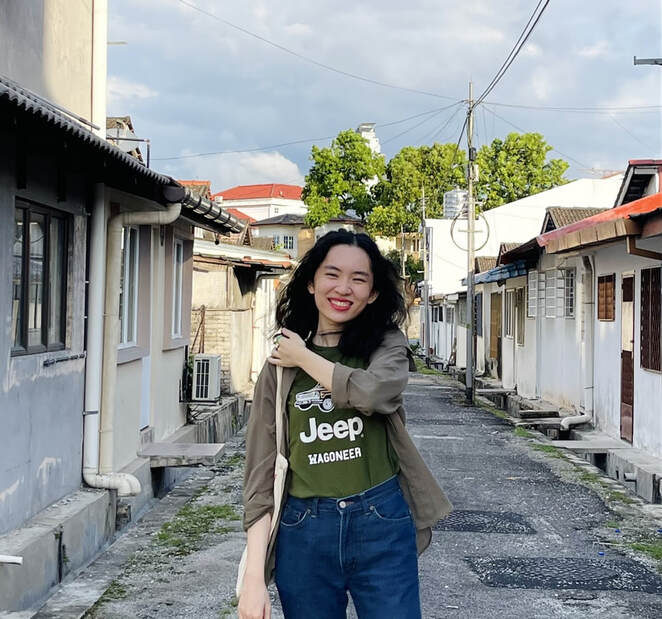
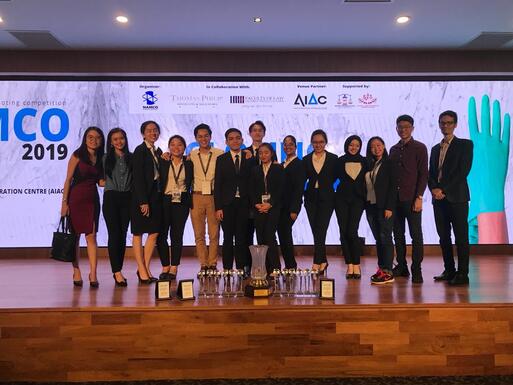

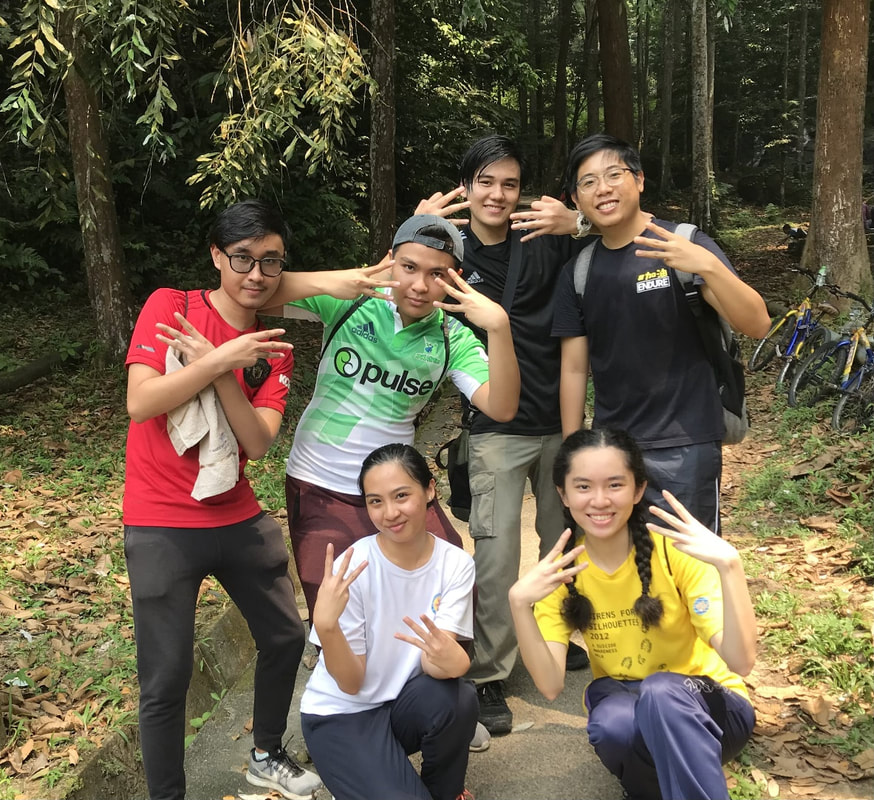
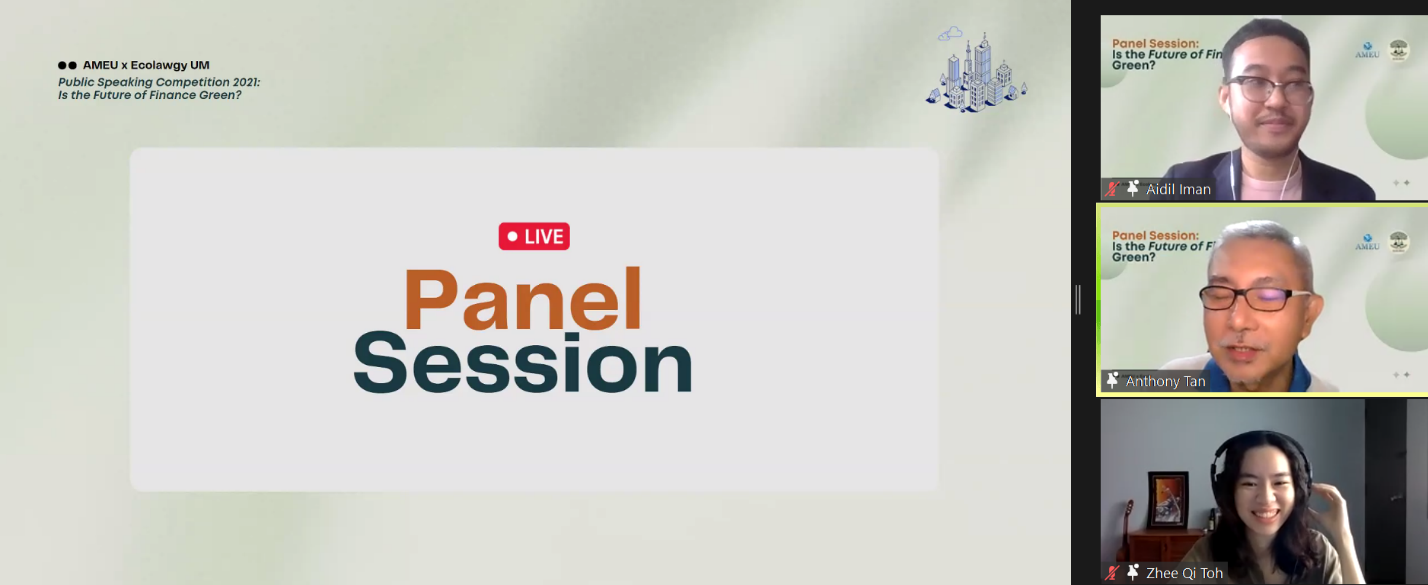
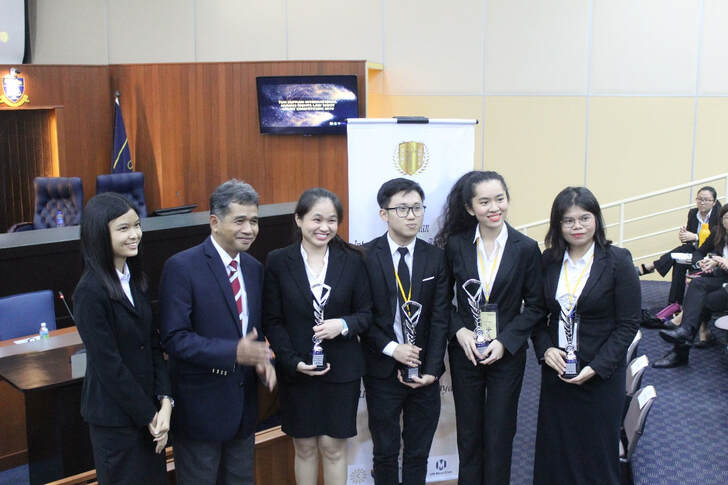
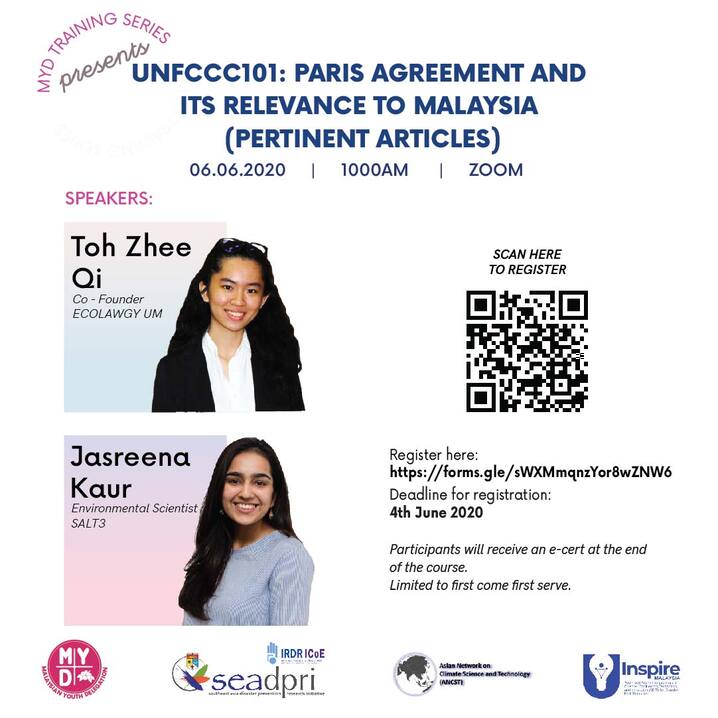
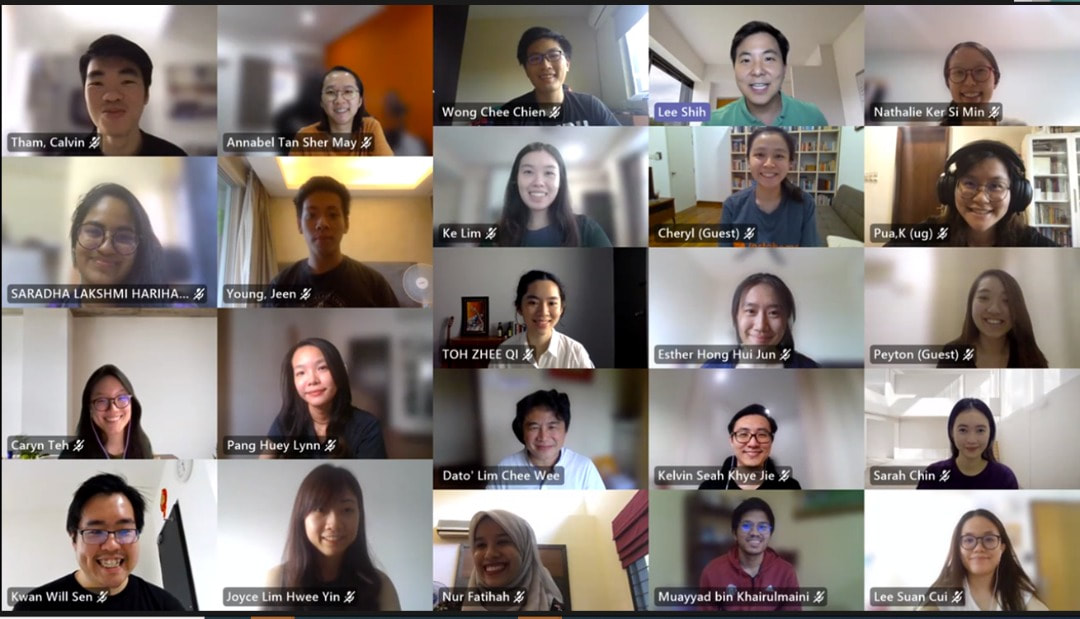
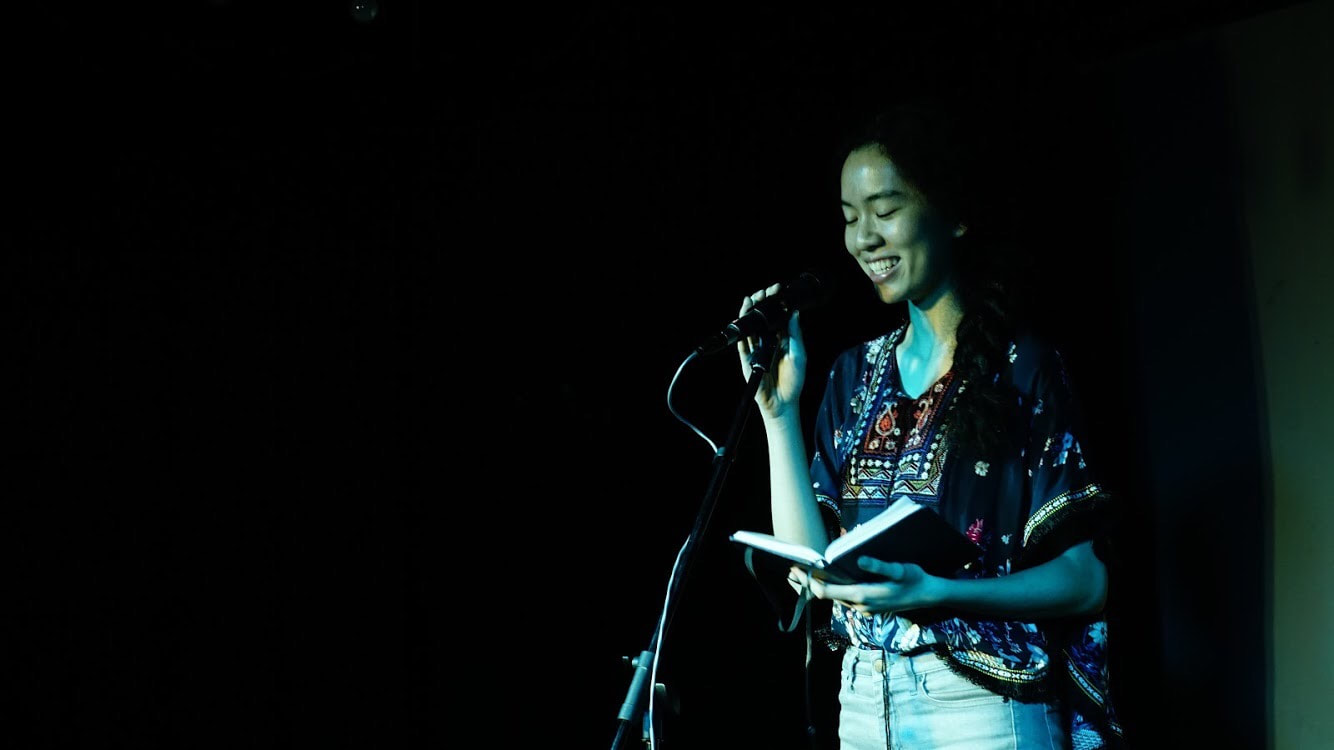
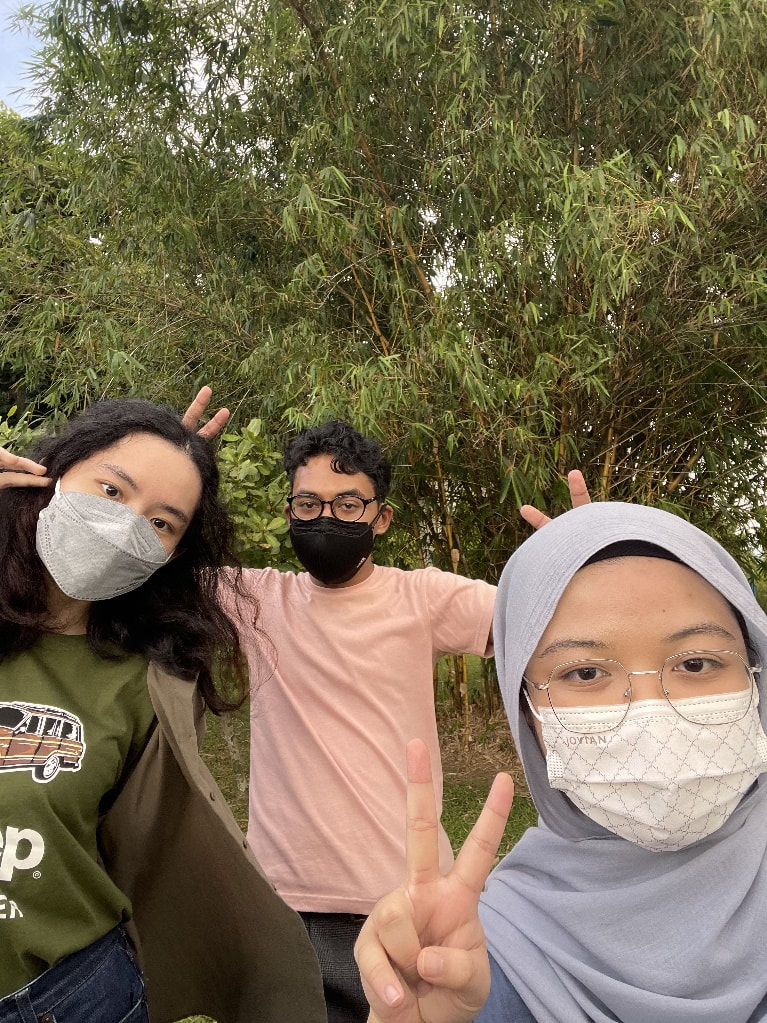
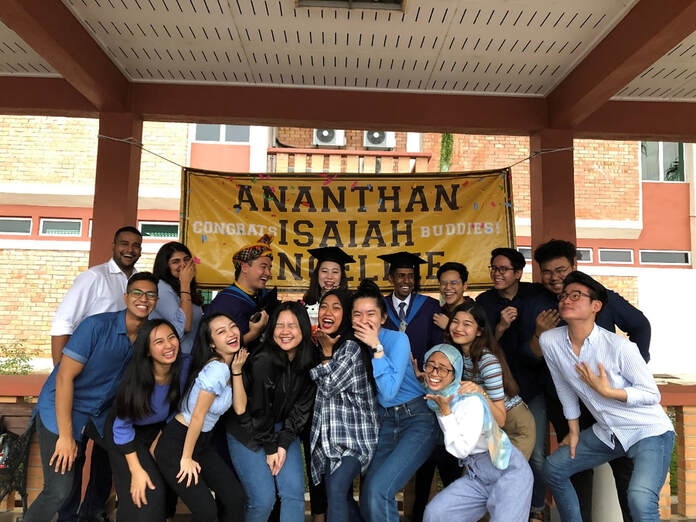
 RSS Feed
RSS Feed